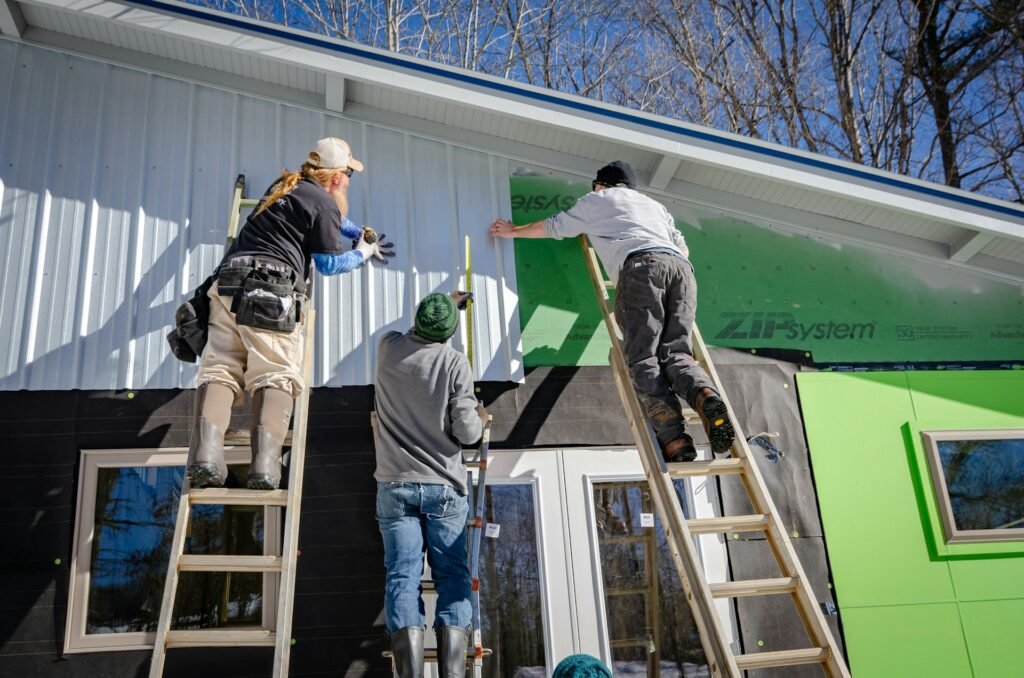Key Takeaways
- Discovering the unique advantages of new construction homes
- In-depth exploration of financial planning for new homebuyers
- Deciphering the timing and location considerations in the home-buying process
- Diving into the customization and technological advancements of modern homes
- Emphasizing the importance of inspections and the long-term value of your investment
Table of ontents
- Introduction to New Construction Homes
- Deciding on New vs. Existing Homes
- Understanding the Buying Process for New Construction
- Financing Your New Home
- Location Matters: Finding the Right Community
- Designing Your Dream Home
- The Technology of Modern Homes
- Timing Your Purchase
- The Long-Term Value of New Construction
- Checklist Before Making the Move
Introduction to New Construction Homes
Choosing between a new construction home and one with a history is one of the most significant decisions when becoming a homeowner. New construction homes like those at https://yourhomewichita.com/newhomeswichita/ are becoming increasingly popular, offering customizable layouts, modern designs, and eco-friendly building practices. They are attractive for homeowners looking for comfort, convenience, and sustainable living. These homes provide a wise investment opportunity, allowing you to start fresh in a house that aligns with your vision.
Deciding on New vs. Existing Homes
Choosing between a newly constructed house and an existing one is complex. New houses offer modern amenities and personalization, while existing homes provide more value regarding location and character. However, new houses may have a higher price tag, while existing homes may have maintenance issues or outdated features. It is essential to evaluate the pros and cons based on one’s preferences, budget, and long-term goals before deciding.
Understanding the Buying Process for New Construction
Buying a new home involves more than just choosing a builder. Buyers must navigate agreements, timelines, and variables like weather and permit approvals. Attention to detail is vital, particularly during inspections and warranties. A thorough home inspection is necessary, even for new builds, to ensure everything complies with local codes and personal standards. A comprehensive inspection before closing is invaluable, as outlined in resources like Bankrate’s guide on home inspections.
Financing Your New Home
Buying a new construction home requires thoughtful planning. Mortgage structures and expenses differ, and buyers must prepare for unexpected costs. Prospective homeowners should explore mortgage options and funding sources and create a budget that accounts for all costs, including property taxes and insurance. This approach helps ensure they’re prepared for all stages of the home-buying journey.
Location Matters: Finding the Right Community
Choosing the right location for your new home is as crucial as the home itself. Your selected location affects your daily life, community engagement, and property value. Proximity to work, schools, and amenities are paramount. Consider neighborhood potential for growth and development, crime rates, planned infrastructure projects, and community resources. Visualize your life in the neighborhood, ensuring that it aligns with your evolving needs and desires.
Designing Your Dream Home
Designing a new home is a personal journey that lets you create a space that reflects your style and needs. Collaboration with architects, designers, and builders can turn your vision into a plan that balances desire and practicality while staying within budget. Staying informed about current design trends is a great way to ensure your home remains stylish and functional.
The Technology of Modern Homes
Modern homes are now synonymous with intelligent technology that blends convenience with conservation. Smart thermostats, energy-efficient lighting, and advanced security systems have become commonplace, giving homeowners greater control over their living environment. These intelligent technologies offer real-time feedback and automation, promote energy savings, and reduce the home’s environmental footprint. Eco-conscious buyers are also drawn towards sustainable materials and building practices that minimize ecological impact. From solar panels to high-efficiency insulation, eco-friendly features in new construction homes appeal to people from a moral standpoint and for long-term cost savings.
Timing Your Purchase
Timing is crucial when purchasing new construction. Housing markets fluctuate and are influenced by seasonality and economic conditions, affecting availability and pricing. Savvy buyers monitor the market for the best time to negotiate. Understanding market cycles and construction progress is essential to align your moving schedule and ensure a smoother transition. Anticipating the right buying time can help secure your home with favorable weather and financial terms.
The Long-Term Value of New Construction
Newly built homes are reliable investments due to their modern design, low maintenance, and potential resale value. As neighborhoods around new developments mature, the availability of amenities like parks and schools also increases, positively impacting property value. A well-located home in a well-planned community is more likely to see substantial growth in property value over time.
Checklist Before Making the Move
Before moving into your new home, it’s essential to be meticulous during the final stages of the building process. The final walkthrough helps identify any issues before taking ownership. Additionally, create a checklist for transferring utilities, updating addresses, and planning furniture placement to ensure a smooth transition. Acclimating yourself to your new neighborhood is equally important. Meet your neighbors, learn about community resources, and explore local attractions to make your new house a home. Building relationships within the community creates a sense of belonging and long-term satisfaction with your new home.

